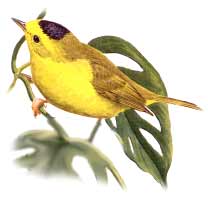
It was not before the glow of morning and the first bustle outside his town house that he fell asleep, that he found a half numbing, an inkling of sleep for a few moments. And in those moment he had a dream:
Kamala kept a small, rare songbird in a gold cage. He dreamed about this bird. He dreamed that this bird, which normally sang in the morning, had grown mute, and noticing this, he went over to the cage and peered inside. The little bird was dead, lying stiff on the bottom. He took it out, weighed it in his hand for a moment and then threw it away, out into the street---and at that same moment, he was terribly frightened, and his heart ached as if, with this dead bird, he had thrown away all value and all goodness.
Jumping up from this dream, he felt a profound sadness. He had, it seemed to him, been leading a worthless life, worthless and senseless; no living thing, no precious thing, nothing worth keeping had remained in his hands. He stood alone and empty like a castaway on a shore....
Now Siddhartha knew that the game was done, that he could play no longer. A shudder ran through his body: inside him, he felt, something had died....
That same hour of night Siddhartha left his garden, left the town, and never came back. For a long time Kamaswami, who thought he had fallen into the hands of highwaymen, sent out men to look for him. But Kamala sent no one to look for him. When she learned Siddhartha had disappeared, she was not surprised. Had she not always expected it? Was he not a samana, a homeless wanderer, a pilgrim?....
When she heard the first news of Siddhartha's disappearance, she stepped over to the window, where she kept a rare songbird in a gold cage. She opened the door of the cage, took out the bird, and let it fly. She watched and watched it, the flying bird.
--from Siddhartha, by Herman Heese


No comments:
Post a Comment